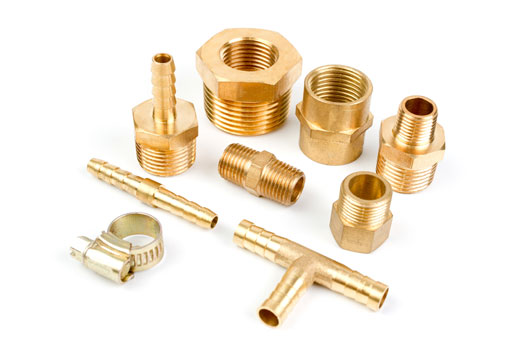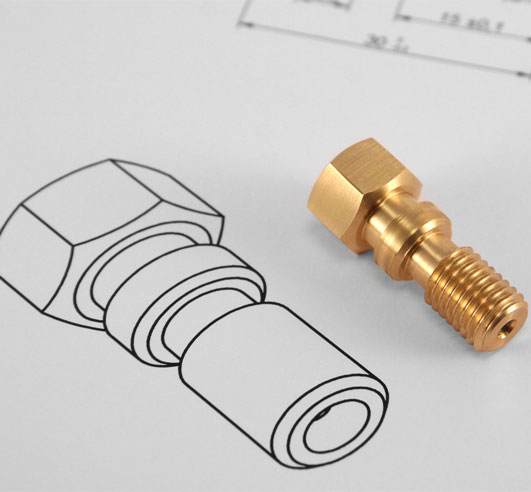Brass CNC precision machining has emerged as a vital process for a variety of industries. This manufacturing method helps produce high-quality, complex, and accurate components for various applications. In this comprehensive guide, we will delve deeper into this fascinating world of brass CNC precision machining and explore its various aspects.
Understanding Brass and Its Properties
Brass, an alloy of copper and zinc, is known for its unique attributes which make it an ideal material for CNC machining. Some key properties of brass include:
1. High conductivity:Brass boasts excellent electrical and thermal conductivity, making it perfect for electrical applications.
2. Corrosion-resistant:It naturally resists corrosion, ensuring long-lasting components in various environments.
3. Machinability:Brass is a highly machinable material, which means that it is easy to work with during the CNC machining process.
4. Aesthetically pleasing:With its gold-like appearance, brass components offer a visually appealing finish.
The Science Behind Brass CNC Precision Machining
CNC (Computer Numerical Control) precision machining is an innovative manufacturing process where computer-controlled machines execute precise and repetitive cutting, milling, or turning operations. Brass CNC precision machining utilizes this technology to produce highly accurate and complex components for various industries, including aerospace, automotive, and electronics.
Different Brass CNC Machining Processes
Several methods are available for brass CNC machining, and choosing the right technique depends on the required components' complexities and tolerances. The most common brass CNC precision machining processes are:
1. CNC Milling:In this process, a milling machine carefully removes material from the workpiece to create the desired shape or design.
2. CNC Turning:This method involves spinning the brass workpiece and using a cutting tool to remove material for the desired shape.
3. CNC Drilling:Drilling machines create holes in the brass workpiece following the specified depth and diameter.
Design Considerations for Brass CNC Precision Machining
When designing components for brass CNC precision machining, consider the following factors to ensure a successful outcome:
1. Tolerances:Account for the required tolerances of the component in the design phase. Tighter tolerances may increase the component's cost, while looser tolerances may affect its functionality.
2. Tool accessibility:Make sure that the CNC machine tools can access all the required areas of the component easily to avoid difficulties in manufacturing.
3. Material handling:Optimize the design for brass material characteristics to ensure the best possible results.
4. Surface finish:Specify the desired surface finish for the component in the design phase to avoid any surprises during the brass CNC precision machining process.
Best Practices for Brass CNC Precision Machining
To optimize your brass CNC precision machining operations, consider the following best practices:
1. Select the right tooling:Choose the appropriate cutting tools, considering factors such as the brass alloy being used, the component's geometry, and the required surface finish.
2. Lubrication:Use suitable lubricants and coolants to extend tool life and minimize friction during the machining process.
3. Minimize vibrations:To ensure the best results, employ techniques to reduce vibrations, such as by optimizing cutting parameters, using vibration dampening equipment, and selecting the appropriate tooling.
4. Monitor tool wear:Keep an eye on tool wear and replace them as required, as worn tools can lead to poor surface finish, inaccurate dimensions, and longer machining times.
Applications of Brass CNC Precision Machining
Brass is an essential material in a variety of industries, and its versatility is evident in the wide range of applications where brass CNC precision machining is utilized. Some examples include:
1. Aerospace:Brass components are commonly used in aircraft systems due to their exceptional conductivity, corrosion resistance, and reliability.
2. Automotive:Brass CNC machining is employed to manufacture engine parts, electrical connectors, and decorative elements for cars and other vehicles.
3. Electronics:The manufacturing of connectors, switches, and casings for electronic devices often involve brass CNC precision machining.
4. Medical industry:Brass components are used in numerous medical devices, such as surgical instruments, and diagnostic equipment.
By adopting the practices mentioned here and understanding the intricacies of brass CNC precision machining, engineers and manufacturers can effectively create high-quality, precise, and complex components to meet the diverse needs of various industries.
brass cnc precision machining







